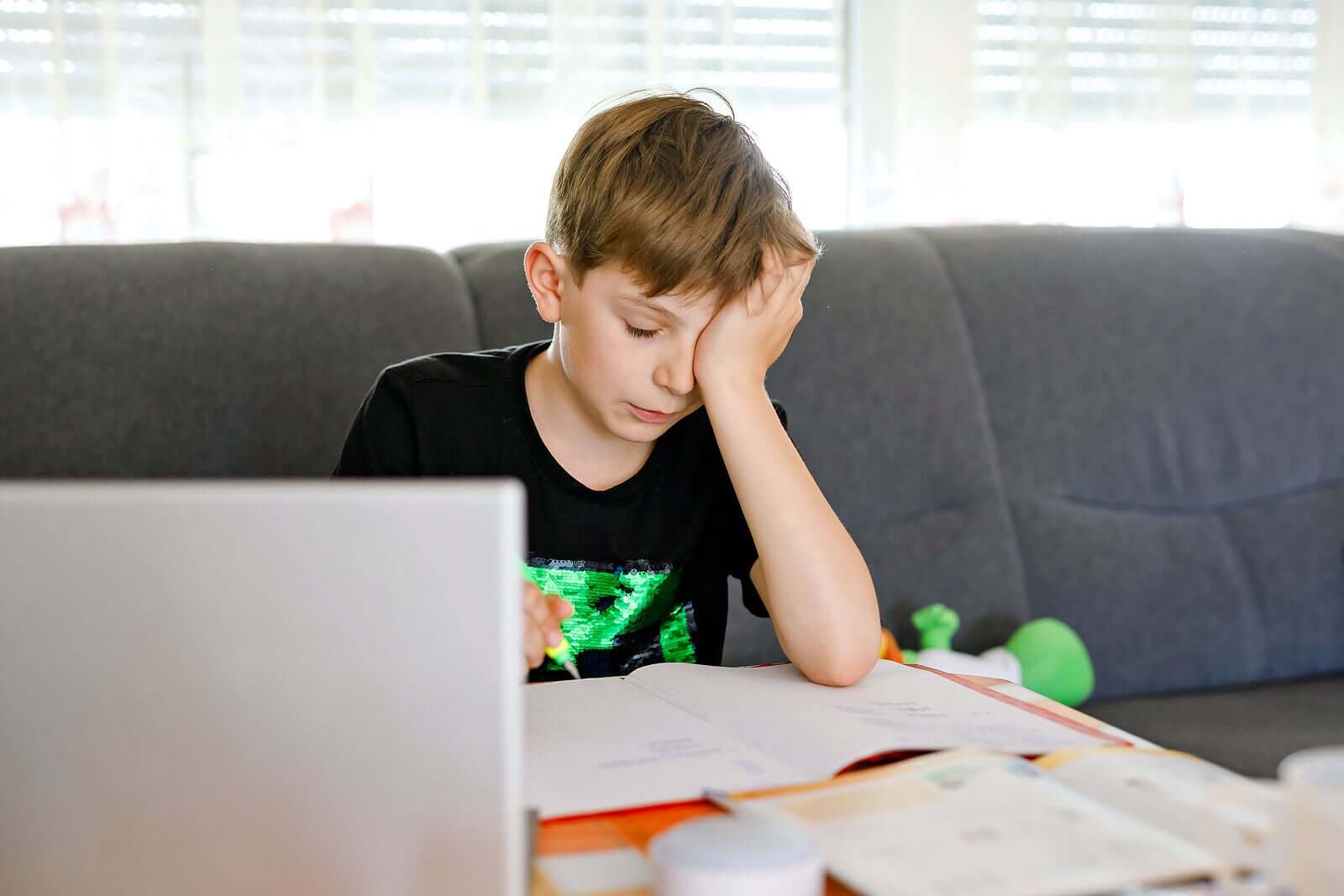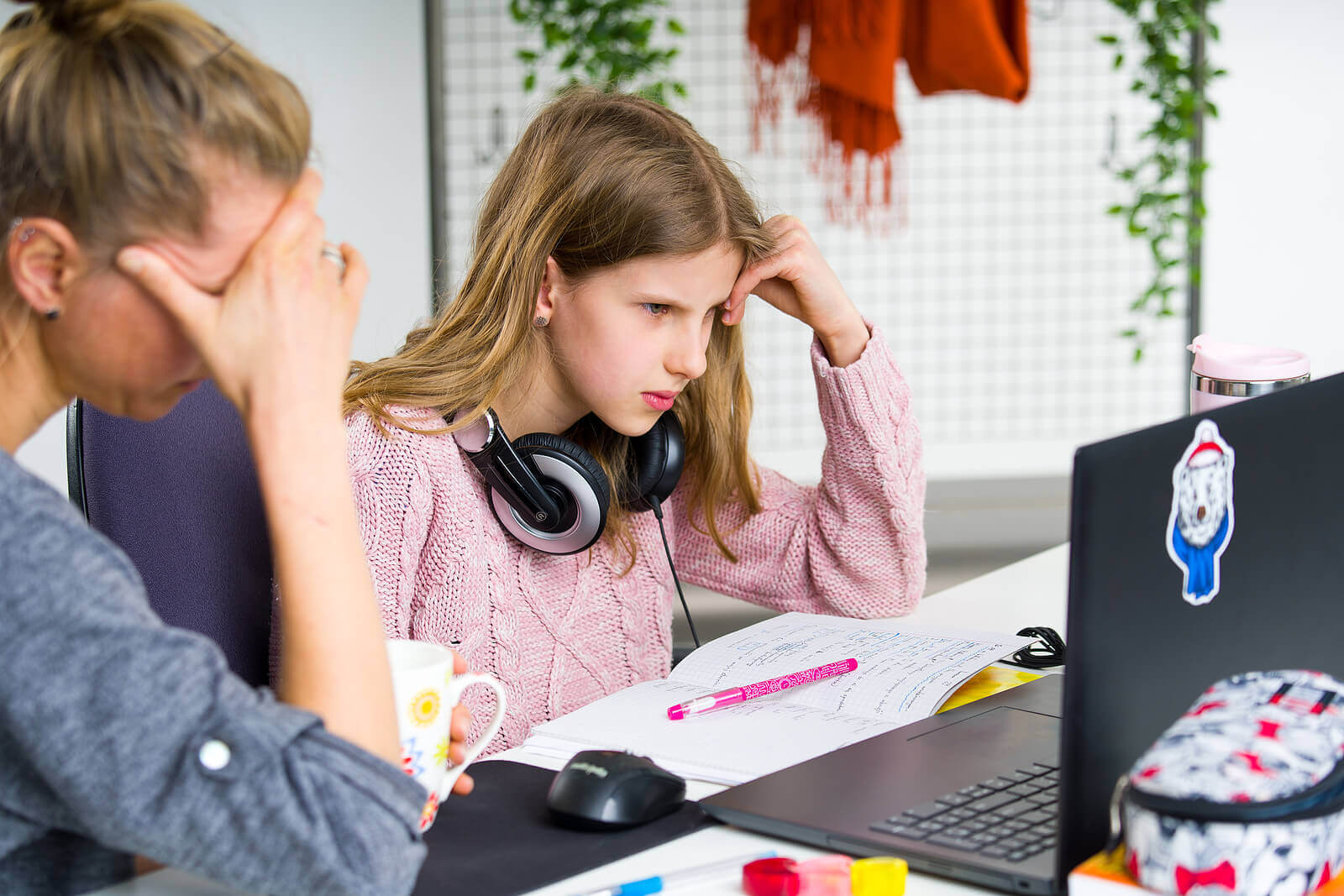How to Help a Teenager with Learning Disabilities

Having learning difficulties can be a major blow to a child’s self-esteem, especially during the adolescent years. During this stage, socialization and looking “cool” to others is critical. So, if you have a teenager with learning disabilities, they may quickly become frustrated and think it’s not worth the effort because they won’t get better anyway.
Obviously, that’s not the case. Therefore, you should keep in mind that properly helping a teenager with learning disabilities can improve their ability to develop. In turn, they’ll be able to achieve the goals that adapt to their particular case.
Talk about what’s going on
More than anything, teenagers want to be “normal.” Why else would they wear the same style of clothes, use the same slang, go to the same movies, and listen to the same music as their peers?
In all likelihood, your child doesn’t want to be classified as “the slow one”, “the one who doesn’t understand”, “the one with learning disabilities”, etc. They just want to fit in and for others to accept them.

When talking about a diagnosis with your teenager, you may find that their first response is actually a relief. Now they know why a particular skill or subject was causing them trouble. For this reason, the first step in helping your teenager with learning disabilities is to tell them exactly what’s going on and why.
It’s also beneficial to tell them that many more teens are in their situation and that they’re also struggling every day to make progress in their learning. It’s a good idea to reach out to these types of people and families for help with what they should and shouldn’t do to improve.
Helping your teenager with learning disabilities
That said, it’s still hard to accept that you’re different, especially for teens. Here are some ways you can help your child cope with their diagnosis. Remember that it’s very important to talk to them gently and understand their emotions at all times.
Individual therapy for learning disabilities
Some families put their teens in individual therapy for a short period of time once they receive a diagnosis. In part, to provide emotional support for this “difference.”
A good therapist will help teens focus on their strengths and weaknesses in a way that allows the teen to accept what they’ll face in the years ahead.
Your child’s school psychologist may be willing to meet with a student for a few sessions or may refer you to an outside source that’s affordable. If necessary, you can talk directly with this professional to see what kind of help they might offer you to best cope with this situation.
Support groups for learning disabilities
Some schools organize support groups for children with learning disabilities, and this type of support can be very beneficial for adolescents. If your child’s school doesn’t provide this kind of ongoing support, ask for a referral to a place that does.
You, as a parent, may also be overwhelmed by this news. When you find a support group for your teen, ask if there are resources for parents.

You can also find a special committee dedicated to working on additional services for students with learning disabilities at the school or other services in your area. Any group you find will link you to other parents who can provide you with useful information.
Check out the resource directory
Check out the resource directory for national organizations that specialize in learning disabilities. Through them, you’ll be able to obtain information on the subject.
You can also get references to local resources in your area. There are seminars for parents on a wide variety of topics. Once you know what kind you’re interested in, you’ll only have to organize the information.
With these tips, it’ll be much easier to help a teenager who has a learning disability. In this way, you’ll be able to prevent them from having self-esteem problems because of this.
Taking this into account, they’ll be able to gain enough motivation to advance in their learning without feeling less than anyone else. Each person is unique and has their own strengths and weaknesses.